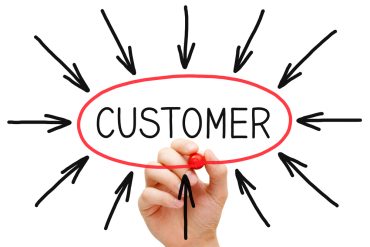
Even though data analytics is in the adoption phase in the hotel industry – it offers a world of advantages for hoteliers.
Businesses around the world are waking up to the importance of data analytics. Getting the right insights gives you an advantage in a competitive business environment. The hotel industry is no different.
Data analytics in the hotel industry is key to marketing strategy, building customer loyalty, and enhancing productivity. It enables hotels to personalize experiences for their guests, introduce better hotel pricing strategies, and expand their customer base. Here are five ways in which data analytics makes a positive impact on the hotel industry.
See also: What is Event-Driven Architecture? (Sponsored)
1) Customer Data Analysis & Market Segmentation
- Analyzing customer data allows hoteliers to understand the preferences and purposes of a customer.
- Customers could then be categorized into market segments.
- This segmentation helps target the right audience for marketing and sales.
- Data analytics in hotels enables you to share relevant promotional information with the right market segment.
2) Real-Time Data and Hotel Pricing Strategies
- Tracking real-time data is directly profitable for the hotel industry.
- Analyzing booking patterns shows the demand trends which you can use to implement dynamic pricing.
- Hotels can also use real-time data to create tailor-made packages and offer them to the right customers at the right time.
- Adopting a pricing strategy based on real-time data analytics is essential for hotel revenue management.
3) Managing Hotel Booking Channels
- Hotels receive bookings from various channels such as online travel agencies (OTA), direct bookings, and website bookings.
- Data analytics in hotels looks at the different mediums to determine the volume of booking received from each channel.
- Hoteliers can use this information to understand which channel yields the most bookings and which channel needs to be worked on.
- This data is important to formulate the right marketing strategy that gives your hotel bookings the right push on all channels.
4) Inventory Management
- Data Analytics in hotels is useful for inventory management.
- Keep a close track of your supply with data analytics in hotels and identify usage trends as time passes.
- This helps you maintain a balance of inventory – you neither run out of inventory nor have an excess of it at any point.
- Efficient inventory management is also helpful for successfully implementing hotel pricing strategies.
See also:Coronavirus May Accelerate Hotel Service Robot Adoption
5) Demand Forecasting
- Analyzing customer behavior patterns and real-time data can help you forecast demand with higher accuracy.
- Demand forecasting analysis is useful for revenue management, inventory management, and implementing dynamic pricing strategies.
- Data Analytics and machine learning help define the optimal room rate in real-time to maximize revenue.
Even though data analytics is in the adoption phase in the hotel industry – it offers a world of advantages for hoteliers. You can personalize marketing and promotion efforts for your customers to build loyalty, manage inventory, and implement optimized dynamic hotel pricing strategies. Get the advantage of data analytics in the hotel industry to gain an edge over your competition today.
Sponsored Resource: Enhancing Intelligent Real-Time Monitoring with Streaming Analytics Using Real-Time Digital Twins [Download Now]




























